Blogs
Solo Travelling and Scuba Diving
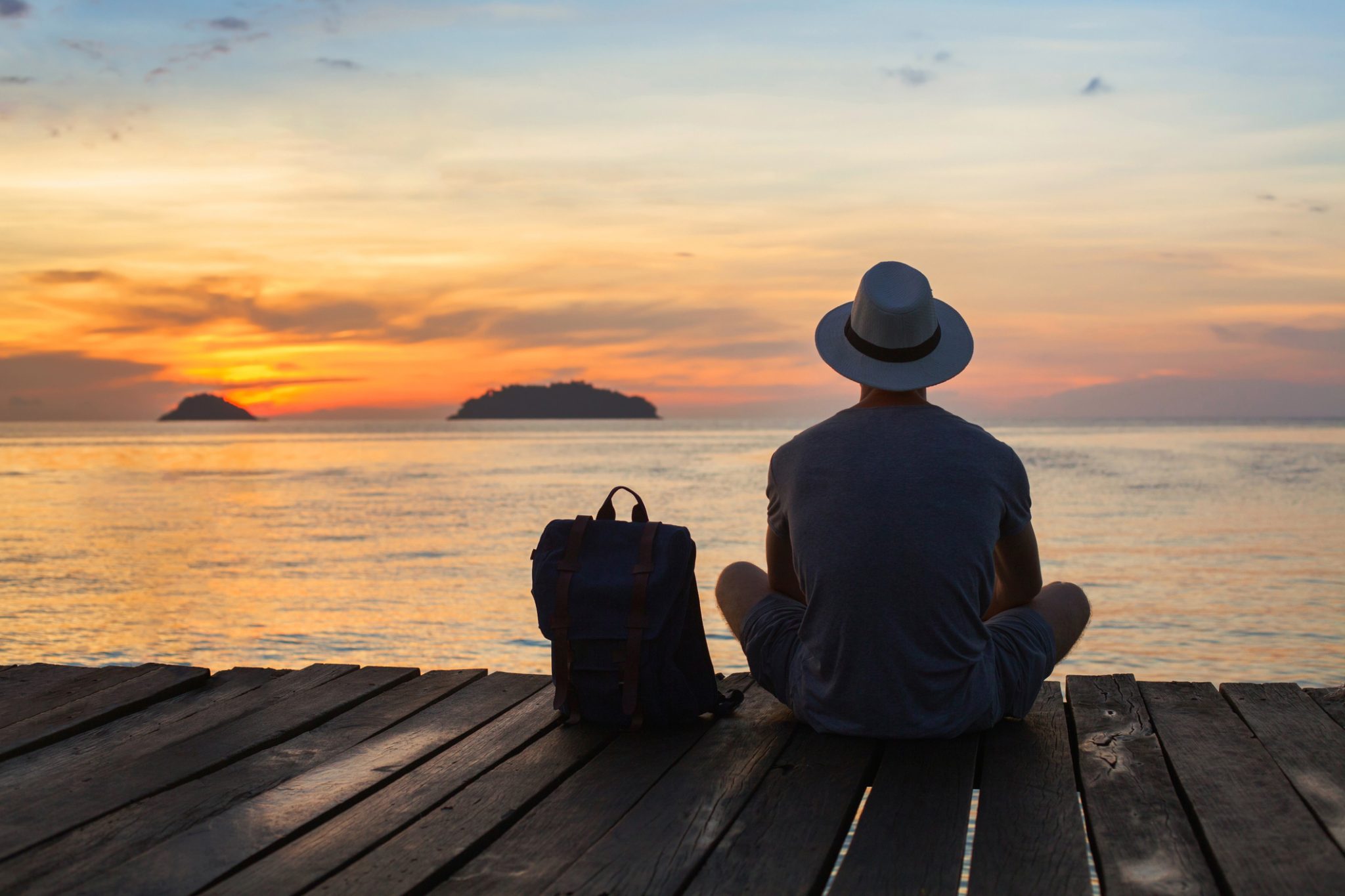
Solo traveling elicits strong reactions, with some relishing the freedom it brings, while others shy away from the idea. The dichotomy lies between the autonomy of solo journeys and the comfort of companionship. Scuba diving group trips for solo travellers emerge as the perfect synthesis, offering a unique blend of freedom and camaraderie.
Embarking on a solo scuba diving adventure is a thrilling journey into unparalleled freedom, new discovery and self-discovery beneath the waves. However, solo travellers should be mindful of considerations to ensure a safe and enjoyable experience, especially those diving abroad, taking precautions before leaving their home country is crucial for a safe and enjoyable journey.
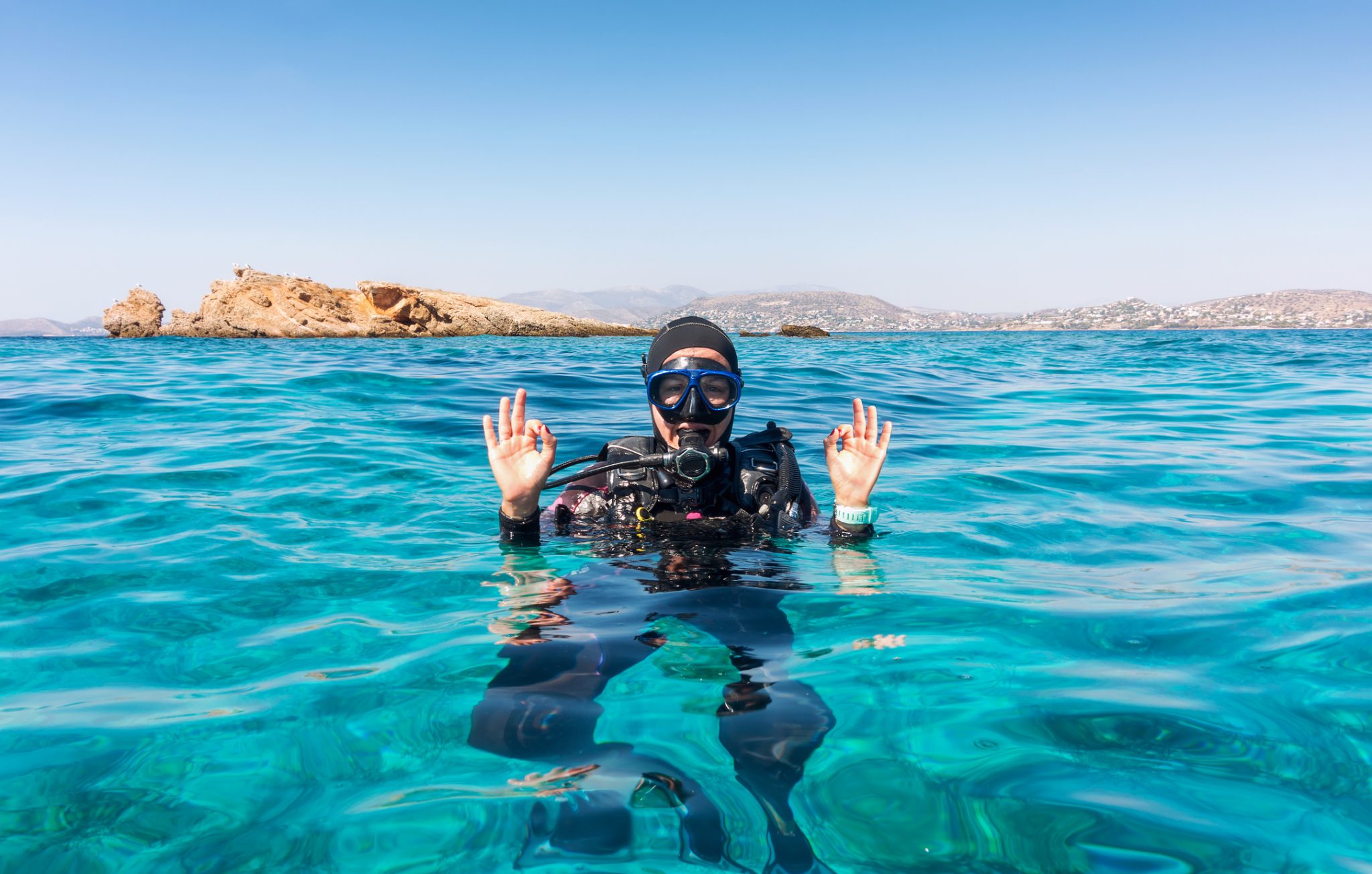
“I started travelling solo by chance”- my wife recalls- “I joined a group from the diving club planning to travel to Tobago, people pulled out at the last minute and I decided to go ahead alone. I did enjoy the freedom: I could travel at the times I wanted, to the destinations I wanted, no need to negotiate when and where to eat and the air conditioning temperature. Diving is a social sport anyway, and the divers one meets are by definition like-minded people. It’s an opportunity to make new friends, often from different nationalities. I’ve gained so much in self confidence and interpersonal skills, way more than on corporate training courses J. However, as a woman solo traveller, I’ve always had to be mindful of personal safety in circumstances where one simply doesn’t know what to expect. I remember the apprehension I felt on the boat ride alone from Batanga to Puerto Galera in the evening. Also the same feeling whilst waiting in Dubai for someone to pick me up and drive me 2 hours to Musandam. This someone is now a dearest friend. The best thing for me is always to book through someone that has made the same journey, lived the experience directly and has close personal links at destinations.”
In essence, scuba diving trips for solo travellers offer a harmonious blend of autonomy and companionship. These journeys transcend traditional group travel challenges by uniting solo adventurers with a common passion.
The first question and one of the most important, as the answer usually determines your location is Liveaboard or Shore based, and there are Pros and Cons to both:
Liveaboard

Pros
Immersive Dive Experience: Liveaboards provide uninterrupted access to dive sites, maximizing your time beneath the waves.
Varied Destinations: Journey to remote and pristine locations, exploring a range of dive spots during a single trip. Usually these site are only accessible by Liveaboard
Community Experience: Forge close bonds with fellow divers on board, fostering a sense of camaraderie.
Cons
Limited Amenities: Space constraints on liveaboards might limit facilities compared to resorts.
Community Experience: Liveaboards forge a close-knit community of divers and individuals, which may not be conducive to everyone’s character, particularly for people who enjoy some time alone to charge the batteries, or those not keen on negotiating group dynamics in a somewhat confined environment.
Shore based

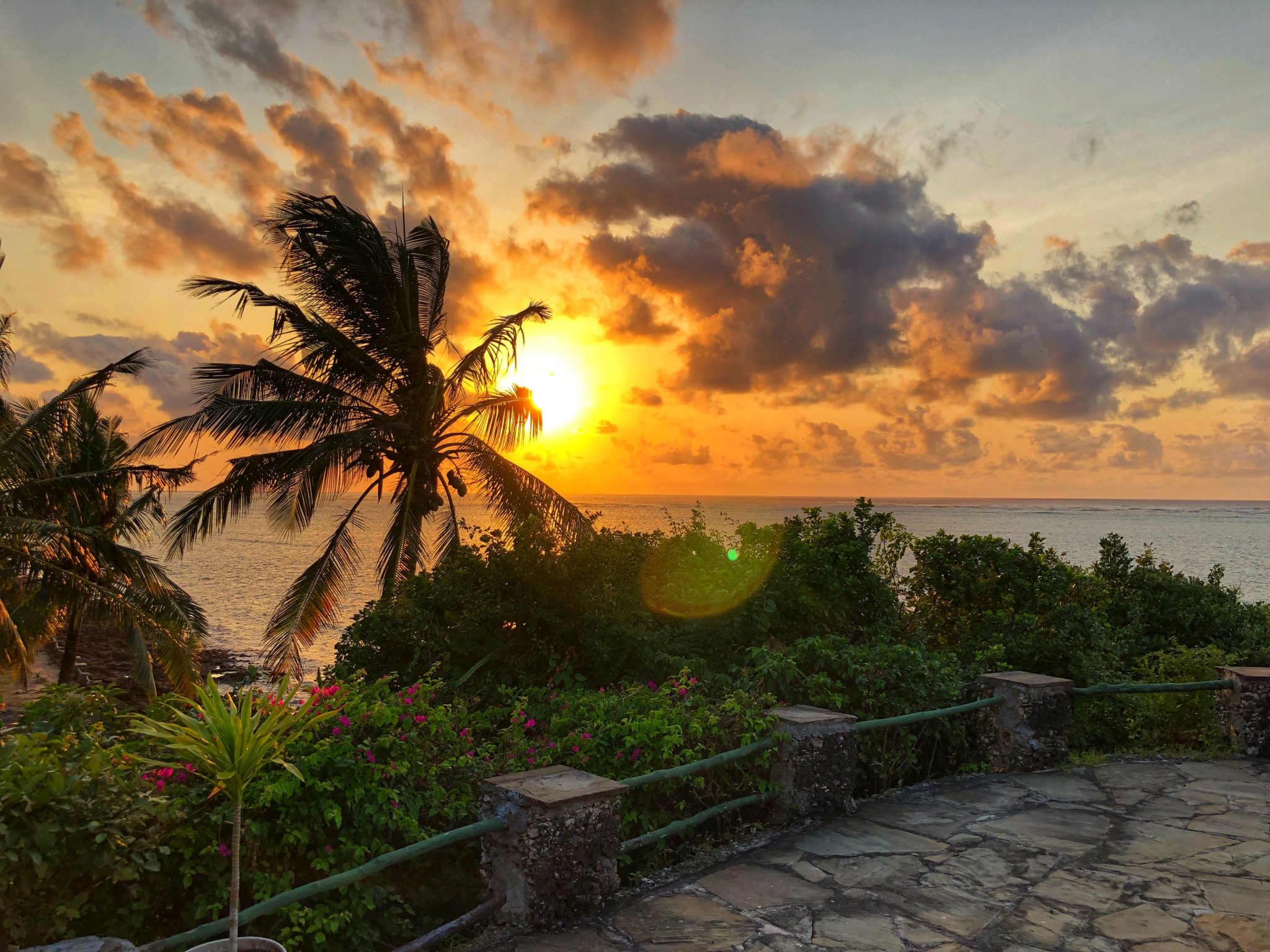
Pros
Comfort and Amenities: Resorts offer a comfortable stay with various amenities, including spas, swimming pools and restaurants.
Flexibility: Choose daily dives or explore at your pace, enjoying the freedom to create a personalized itinerary.
Onshore Exploration: Besides diving, resorts often provide opportunities to explore local culture and attractions.
Cons
Fixed Locations: While convenient, resorts limit you to specific dive sites accessible from shore.
Time Constraints: Day trips or tight schedules may impose time restrictions on your underwater adventures.
Flexibility: Unless you are certified as a solo diver then you have to dive with a buddy or with a private guide, which could be a costly option.
Considerations
Personal Preferences: Evaluate your preferences for accommodation, community engagement, and the overall pace of your dive experience.
Destination Exploration: Assess whether you seek the thrill of exploring multiple dive destinations on a liveaboard or prefer the convenience of a single resort location.
Choosing between liveaboard trips and dive resorts hinges on your desired balance of adventure, comfort, and community. Whether you opt for the dynamic exploration of liveaboards or the leisurely pace of resorts, each option promises a unique and unforgettable underwater journey.
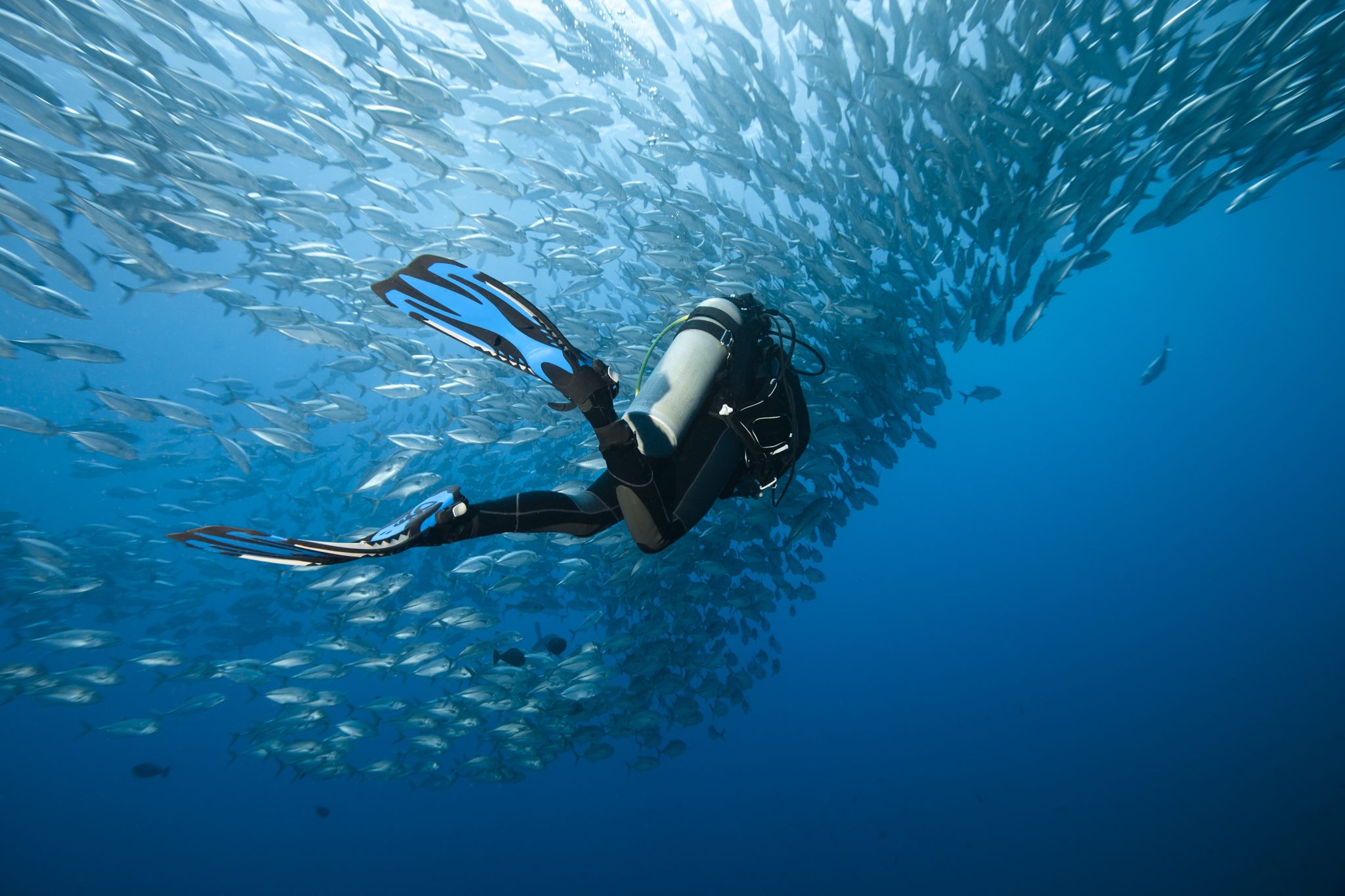
Dive Destination – Research and Planning
Conducting thorough research on dive destinations is crucial. Understand its culture, local customs, and any travel advisories. Always check government advice, BUT also consider joining Facebook or similar groups and get some real-world advice from like-minded divers.
It’s essential to opt for reputable dive operators with a strong safety record. Sea to Sky, a trusted name in the industry, places a high priority on guest safety, offering comprehensive services, advice, and recommendations.
Ensure you are aware of any health risks or vaccinations required for your destination. Carry a basic first aid kit, if weight allows and any necessary medications. We would advise not to take any over the counter medications aboard, as most are readily available and in a lot of cases cheaper. If you are prescribed medications, please ensure that your country of entry allows your medication, and in all cases please take a doctor’s letter/prescription.
Solo divers should be mindful of diving in secluded or challenging dive locations. Opting for familiar, well-monitored locations where assistance is readily available if needed. Sea to Sky takes a personalized approach, considering guests’ experience and certification levels to suggest optimal dive locations within their limits.
Being cautious about equipment is paramount for solo divers. Rigorous gear checks to ensure everything is in optimal condition are essential. For those renting equipment, Sea to Sky ensures that the dive centre or liveaboard operator’s gear is regularly serviced and up to date. Please self-check all equipment, we are happy to advise on what to and how to check any equipment.
Safety and Security
Invest in comprehensive travel insurance and Dive Insurance that covers medical emergencies, trip cancellations, and potential diving-related incidents. Keep a digital and physical copy of your insurance details. Secure important documents like your passport, travel insurance, and diving certifications in a waterproof pouch. Consider making digital copies that you can access online. Share your itinerary and emergency contact information with a trusted friend or family member. Keep them informed about your whereabouts and any changes to your plans. We personally use Nord Locker to store all relevant information, including copies of passport, accessible via the cloud (No affiliation, it’s just what we use).
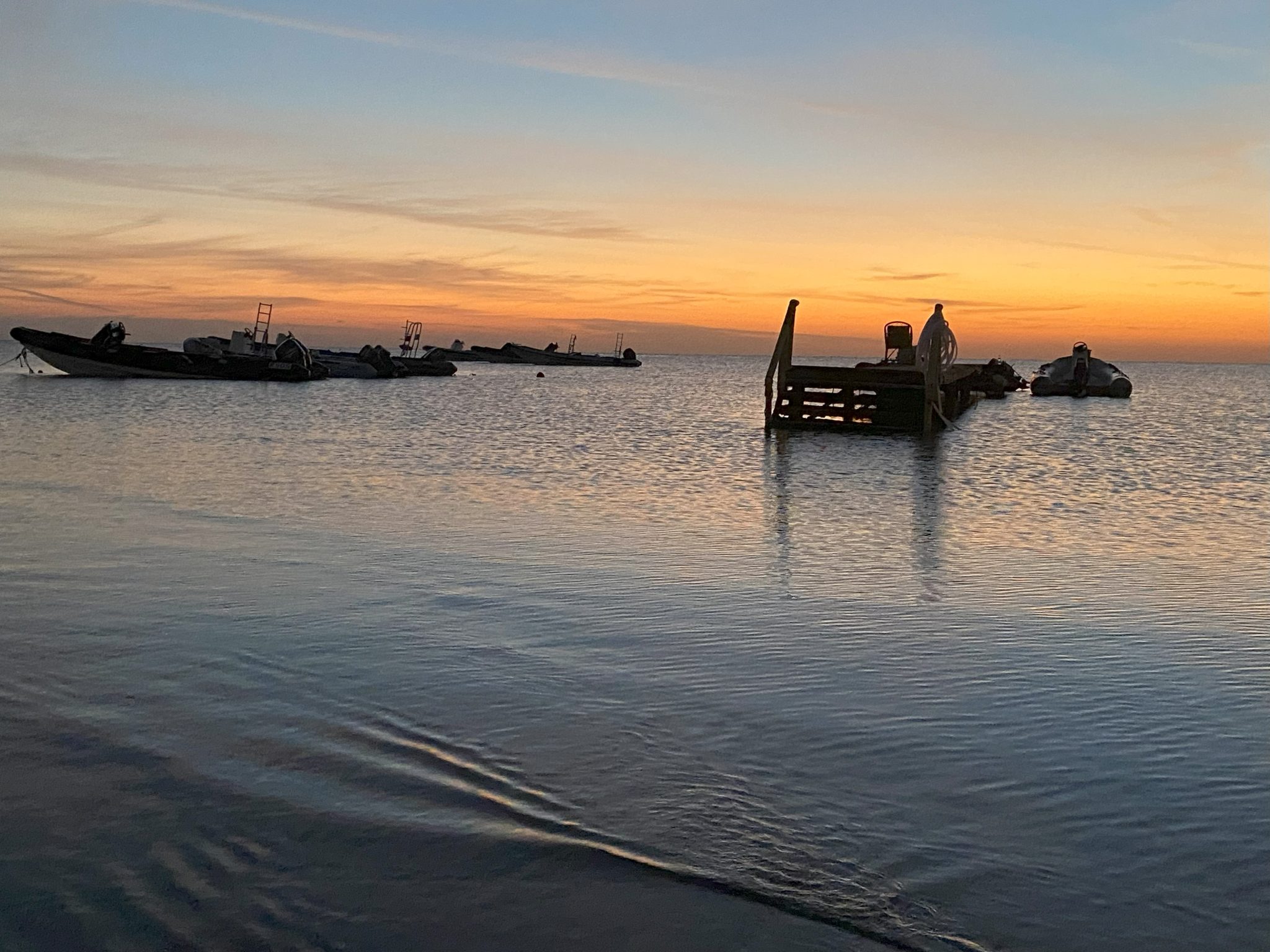
Financial Preparedness
Inform your bank about your travel dates to avoid any issues with your credit/debit cards. Carry a mix of local currency and cards. We can advise country by country what cash to take, as in some destinations Euros or Dollars are the better option. Be cautious when using ATMs and choose secure locations (inside banks for example). Keep a small amount of emergency cash separate from your main funds. This can be invaluable in situations where card payments may not be accepted.
Communication and Connectivity
Consider getting a local SIM card to stay connected. Check the network coverage in your destination and inform your loved ones about your contact number. We also use an ESim called Airolo (Again no affiliation) but some of the charges can be quite high especially in Egypt, but for peace of mind it’s great. Carry a portable charger for your electronic devices, including your phone and any underwater cameras. Also check with the country you are travelling to ascertain what plug is compatible.
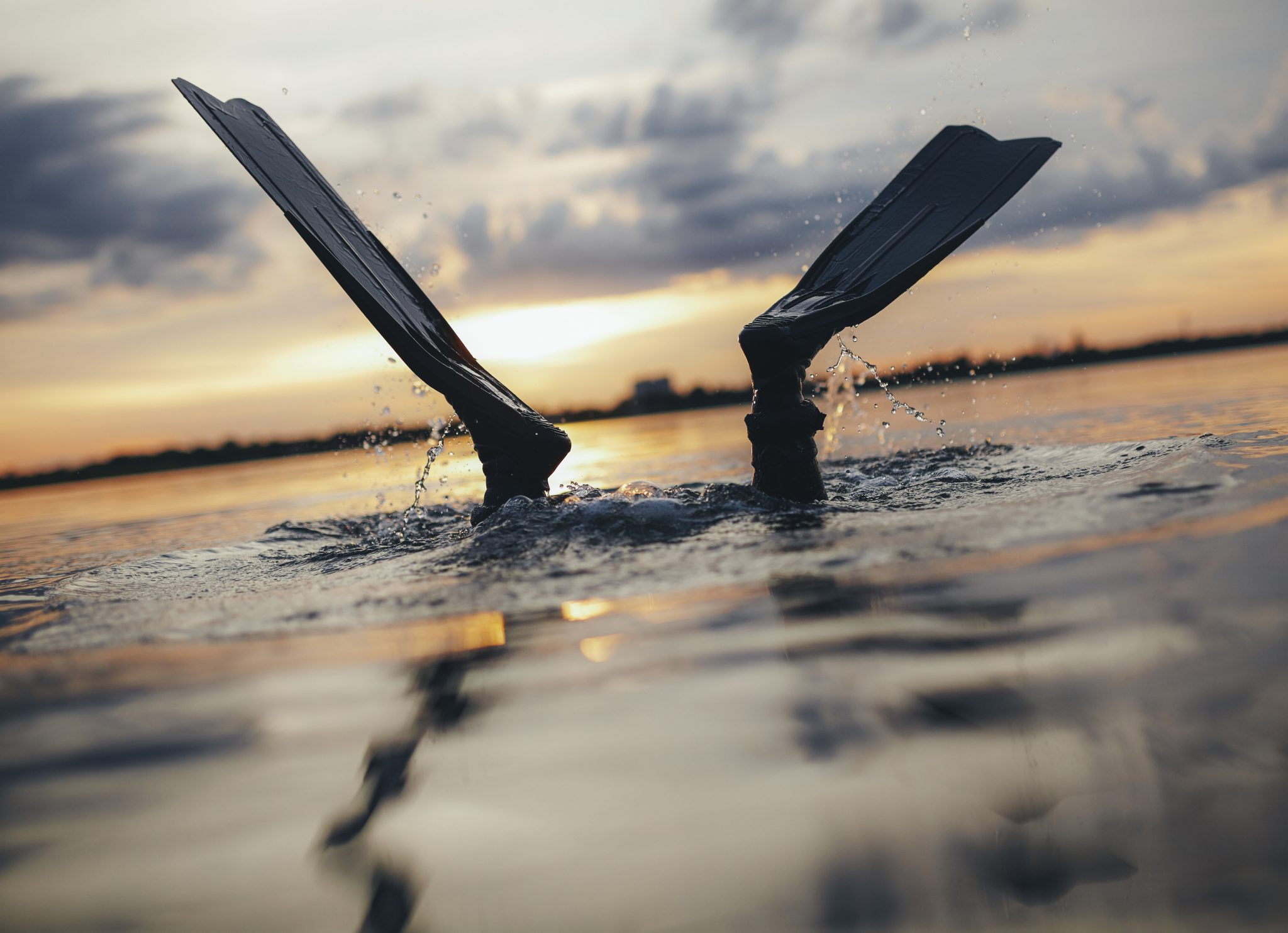
Cultural Sensitivity
Familiarise yourself with the local culture and customs to show respect. This includes appropriate clothing, gestures, and behaviour, both on land and underwater.
What sets Sea to Sky apart is the personal relationships developed with its suppliers and its commitment to providing 24-hour telephone contact for guests, offering reassurance and assistance around the clock. Solo travellers can dive with confidence, knowing that expert guidance and support are just a call away.
In essence, while solo scuba diving opens doors to incredible underwater experiences, travellers must exercise caution, conduct diligent research, choose reputable operators, and prioritise safety.
For any information or assistance you require please feel free to contact the team at hello@myseatosky.co.uk.
Join Sea to Sky and embark on new diving adventures! Visit www.myseatosky.co.uk for more information.
Blogs
Alonissos: The complete diving destination (Part 1)

In June we were incredibly fortunate to be invited to dive in Alonissos, a small Greek Island in the Sporades island chain located in the North Aegean Sea. While I have long been a big fan of the Greek Islands as a great holiday destination, I had not had the opportunity to do any diving on previous visits and Mike and I were extremely excited to see what Alonissos had to offer both above and below the surface!

The Sporades are easily accessible via the airport in Skiathos (the first island in the chain), which is served by Jet2 flights from all major UK airports from May through October. Numerous ferries and charter boats make island hopping from Skiathos Town a breeze. After an hour boat ride, the picturesque port of Patitiri was a wonderful introduction to Alonissos, where we were met by our gracious hosts Kostas of Albedo Travel and Dias of Alonissos Triton Dive Center. Mike and I were delighted to be staying at the Paradise Hotel, aptly named for its stunning views over the sea and great location for walking to the waterfront.

Alonissos is beautifully situated in the National Marine Park of Alonissos and the Northern Sporades, the largest marine protected area in Europe. The surrounding seas offer fabulous marine life, including incredibly rare species such as the Mediterranean monk seal. They boast deep walls covered in gorgonians and sponges, stunning topography with caverns, swimthroughs and pinnacles, and the first accessible ancient shipwreck from 500BC!

In locations where historical sites have been reported, the waters are largely restricted, but with collaboration between government, underwater archeologists and dive centres, incredible underwater museums are being created for a truly unique diving experience. Alonissos is home to the first of these, the Ancient Shipwreck of Peristera Accessible Underwater Archeological Site. The chance to dive into history (along with reports of healthy reef life and amazing underwater topography) meant Mike and I were keen to get in the water.

Our introduction to the diving around Alonissos was at the Agios Georgios Pinnacles, in the channel between Alonissos and Skopelos. This fantastic site was named “The Chimney,’ and proved to have a huge amount to see. We got to a decent depth here (over 25m), and marvelled at a colourful reef wall with a wonderful swim through whose rocky walls were absolutely covered with life. As well as brilliant topography there was no shortage of macro life here. We saw numerous nudibranchs, five different species in total. The second dive at Mourtias reef nearby was a shallower dive along a nice wall with lots of crevices. Several moray eels and grouper called this site home. We enjoyed looking in the crevices for lobster and smaller benthic life, such as cup corals and tunicates.

Our itinerary allowed us two dives a day with afternoons left to explore the island with our hire car and evenings to enjoy the famous Greek hospitality. This proved to be a lovely mix of in-water and land based diversions.

The next days diving to the Gorgonian Gardens and Triton’s Cave was to be even better! These two stunning sites are nothing short of fabulous. The Gorgonian Gardens was a deep wall near to the Agios Georgios islands. The ever-present currents in this deep channel meant that the sea life was amazing … the namesake Gorgonian sea fans dotted the wall at a depth of 30 to 50 meters, getting ever larger the deeper we went. Above 30m was by no means less beautiful, with sponges, corals, scorpionfish, moray eels and some rare and colourful nudibranchs.

The second shallower dive of the day was to Triton’s Cave or the Cavern of Skopelos, on the east side of that island. The spectacular rock formations had wild striations both above and below the water making a truly epic topography. The cavern entrance was at 14m, and big enough for a buddy pair, winding up to 6m and passing two beautiful windows out into the blue. Emerging from the cavern, the light at the shallower depths and the incredible rock formations made for a fantastic gentle swimming safety stop and we all surfaced by the boat with massive grins.

Check out our next blog :Alonissos: The complete diving destination (Part 2)” to hear about our amazing dive on the 2500 year old Peristera Wreck!
Thanks to:
Alonissos Triton Dive Center https://bestdivingingreece.com/
Albedo Travel https://alonissosholidays.com/activities/
Paradise Hotel https://paradise-hotel.gr/
Alonissos Municipality https://alonissos.gr/en/
Blogs
Mamma Mia! Diving Skopelos (Part 2)

Our second days dive itinerary was to the famous Christoforos wreck! This is arguably the best dive in Skopelos and though only open to divers with deep diving experience, this 83m long wreck is well worth the visit.
The Christoforos sits in 43 meters of water with the deck at 32 to 35 meters. A 30m dive can give an impressive view of the wreck, though such a large wreck needs a few dives to truly do it justice. Given its ideal location just a 2 minute boat ride from the dive centre dock it is an excellent first dive of the day. The sheltered site is also diveable in all but the absolute worst weather so although deep, the water is usually clear with little to no current making it a very pleasant dive. The site is superb for technical diving and a great training site for the Tec 40 and 45 programs, offered by Skopelos Dive Center.

The Christoforos wreck was originally a collier ship built in 1950 at Grangemouth shipyard under the name “Thomas Hardie”. In 1976 she joined the Greek merchant fleet as “Christoforos”. On the 2nd of October 1983 the Christoforos was carrying 2600 tonnes of cement from Volos to Piraeus Port. During the voyage the weather turned, resulting in the ship developing a 7 degree list, whereby she changed course for safe anchorage at Panormos, Skopelos. The ship reached Panormos at 16:00 with a list of 17 degrees and water ingress to No. 1 hull. Though attempts were made to right the vessel, the crew were ordered to abandon ship at 22:00. The captain, lieutenant and the quartermaster remained to try and save the ship, but had to abandon the attempt themselves and the Christoforos finally sank at 05:30 on 3rd October 1983. She now sits upright in 43 meters of water less than 200m from shore in Panormos.

Diving has only been allowed here since 2018, so the wreck is very well preserved and a real treat to dive. Permission to dive here was granted by the authorities after lots of incredibly hard work by the Skopelos Dive Center staff. Having a fantastic wreck in such an amazing location and in excellent condition is a real privilege.

Of all the sites in Skopelos this was the site Mike and I were most keen to experience. Having kitted up and zipped across the bay to the mooring, we left the surface and followed the descent line until the wreck emerged spectacularly from the blue at 15m. She is a big and beautiful wreck, sitting as though calmly continuing her journey along the seabed. With most of her original features still intact there were points of interest everywhere, including the anchors, winches, ships telegraphs, the wheel and RDF antenna.

We found that aquatic life had colonised the ship, with schools of fish, electric blue nudibranchs, a large moray eel and the resident scorpionfish lurking inside the bridge. The Christoforos was truly a stunning wreck and despite maximising our time at depth we eventually had to say our goodbyes and begin the slow and steady return to the surface.

After a superb morning dive we had the afternoon to do a little sightseeing of the island, with a trip to the church of Agios Ioannis Kastri made famous by the blockbuster movie “Mamma Mia!”. Mike and I spent a happy afternoon pootling around in our little hire car before meeting up with Lina from Skopelos Dive Center. An underwater archeologist as well as a dive professional, Lina had offered to show us a rather special attraction, the Christoforos shipwreck Digital Spot public information and awareness centre.

A fantastic initiative made possible from the collaboration of the government and hard work of the staff at Skopelos Dive Center is the “Digital Spot” in Agnontas port. This information center has a number of displays on the history of the Christoforos wreck, the process by which the wreck was allowed to be opened to the public for diving tourism, other sites of historical interest in the area, a video of the wreck and the best bit, a virtual reality dry dive experience! The beauty of the VR system is that non diving members of the family can see what you have seen on the wreck, or you can see areas that you may not have explored during the dive due to time or depth limitations. It was a truly immersive experience and a great addition to the dive itself.

After a wonderful day we celebrated our last evening on the island with an exquisite meal in Skopelos Town with fabulous views over the town and bay, washed down with the excellent local wine. The lamb with lemon and potatoes was a meal which I could happily eat every day for the rest of my life!

Skopelos is an island that truly has it all. The diving is excellent, the landscape is beautiful with plenty of non diving activities, the locals friendly and the food and drink superb. Given how accessible it is as a holiday destination it has avoided becoming overcrowded and even in peak season offers a fun yet relaxing atmosphere. We highly recommend giving Skopelos a visit. We will certainly be back again!
Thanks to:
Municipality of Skopelos (https://skopelos.com/)
Skopelos Dive Center (https://sporadesdiving.gr/)
Ionia Hotel (https://www.ioniahotel.gr/en)
Dolphin of Skopelos (https://dolphinofskopelos.com/)
Ta Kymata restaurant (@takymata)
The Muses restaurant (https://www.facebook.com/TheMussesMousses/)
Aktaiov resturant (https://skopelos.com/listings/aktaion-taverna/)
-

 Blogs2 months ago
Blogs2 months agoDiving With… Nico, Ocean Earth Travels, Indonesia
-

 News1 month ago
News1 month agoMurex Bangka Announce New Oceanfront Cottages & Beachfront Dining
-

 Blogs2 months ago
Blogs2 months agoA new idea in freediving from RAID
-

 Marine Life & Conservation1 month ago
Marine Life & Conservation1 month agoIceland issue millionaire whale hunter a licence to murder 128 vulnerable fin whales
-

 Marine Life & Conservation2 months ago
Marine Life & Conservation2 months agoThe Shark Trust Great Shark Snapshot is back
-

 News3 months ago
News3 months agoCharting New Waters; NovoScuba Goes Global with the Launch of their Revolutionary Dive Training Agency!
-

 Gear News1 month ago
Gear News1 month agoNew Suunto Ocean – a dive computer and GPS sports watch in one for adventures below and above the surface
-

 Marine Life & Conservation Blogs2 months ago
Marine Life & Conservation Blogs2 months agoBook Review: Plankton















